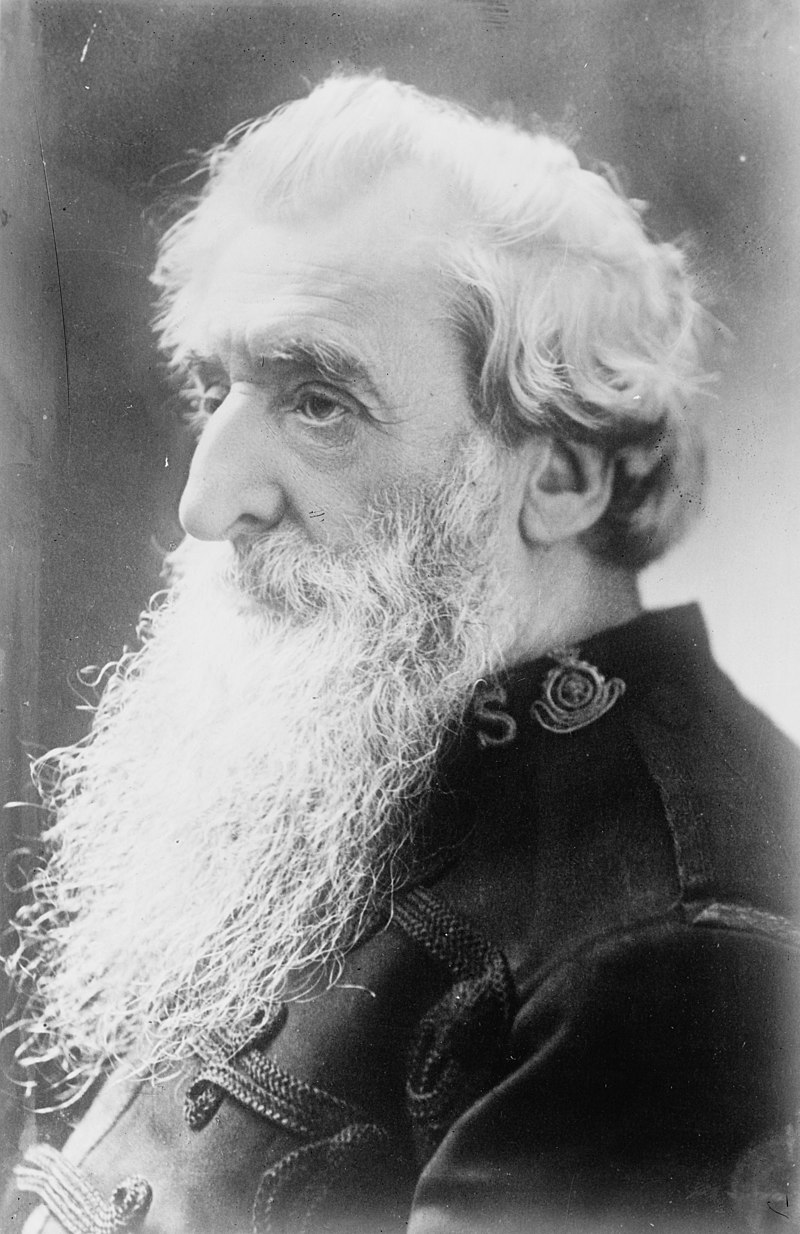Title: Joining The Fellowship
Topic: The Holy Spirit, Refiner's Fire
Joining into the fellowship
What is it? Easy, difficult, just ok, wondersome, stop and go, falling and standing up again, stumbling forward. These are just some ideas and answers you can hear from people integrating into a new society. People learning new customs, trying to make sense of why doing this was normal in the old country and not in the new. Why doing that offends people while nobody in the old country would even pay attention to it.
Maybe you have experienced a little of this when you moved from one state to another, but can you just imagine the difference, or let's say maybe even the culture shock that is experienced when moving from one continent or culture to another. We can see it, for example, the Dutch people in the northeast or in Australia holding on to the old ways in Dutch clubs and complete neighborhoods basted in the old ways. Personally, I am of the opinion that this is the wrong way of doing things. When you immigrate into a new country, you need to adhere and adjust to the legal and social rules of that community. As this might indeed have been a culture shock for me, a former Dutchman who is still learning, even after 25 years in this wonderful country of the United States of America, it also should be for each and every one moving into a new environment.
shock that is experienced when moving from one continent or culture to another. We can see it, for example, the Dutch people in the northeast or in Australia holding on to the old ways in Dutch clubs and complete neighborhoods basted in the old ways. Personally, I am of the opinion that this is the wrong way of doing things. When you immigrate into a new country, you need to adhere and adjust to the legal and social rules of that community. As this might indeed have been a culture shock for me, a former Dutchman who is still learning, even after 25 years in this wonderful country of the United States of America, it also should be for each and every one moving into a new environment.
This is a continuous study and change that we also should experience in our personal life concerning holiness. We are as Christians called into a life of Holiness, and it is a rather big shock for many. Fortunately, we have a wonderful coach and guide.
John 14:16-17 (Amplified Bible)
“And I will ask the Father, and He will give you another Comforter (Counselor, Helper, Intercessor, Advocate, Strengthener, and Standby), that He may remain with you forever—The Spirit of Truth, Whom the world cannot receive (welcome, take to its heart), because it does not see Him or know and recognize Him. But you know and recognize Him, for He lives with you [constantly] and will be in you.”
We are called Christians, which was first a moniker given to those who followed Yeshuah as the Messiah. Meaning the little christs. Jesus gave us this Guide, this counselor, helper, intercessor, advocate, strengthener, and standby so that we would be able to learn, to grow and stand strong, even say the right words at the right time.
Luke 12:11-12 (Amplified Bible)
“And when they bring you before the synagogues and the magistrates and the authorities, do not be anxious [beforehand] how you shall reply in defense or what you are to say. For the Holy Spirit will teach you in that very hour and moment what [you] ought to say.”
No, not by some interesting magic trick, or as a way of speaking in tongues. The Holy Spirit will stir our souls, stir our minds, and help us find the right words at the right time, He helps us to understand, to aggregate and disseminate the information needed into the Kingdom of the Lord and on our road to Holy living in our pursuit of a life of Holiness.
The thoughts for today’s message have kept on pouring into my mind yesterday, last night, and even still today. I do not believe that when there are words to say the Holy Spirit will leave us standing there empty-handed. The Fire of the Holy Spirit upon all of those that are walking on that Highway of Holiness, that Straight road through the desert, the Highway of our God YhWh.
Isaiah shouted it out, John the Baptist repeated it.
Matthew 3:2-3 (Common English Bible)
“Change your hearts and lives! Here comes the kingdom of heaven!” He was the one of whom Isaiah the prophet spoke when he said: The voice of one shouting in the wilderness, “Prepare the way for the Lord; make his paths straight.”
On that Highway to understanding, that Highway of Holiness, that Highway of Righteousness, that Highway of Honesty, Frugality, Self-sufficiency in Christ. On that Highway, we are traveling to the New Yerushalayim, the New Jerusalem, Zion.
Oh, what a wonder journey this year will be together on the road to see Jesus, to be in the presence of Elohim. So let us therefore all have communion together, right here at this moment. Sharing on the Highway of our God, sharing in the sacrifice of the lamb, sharing His body, sharing His blood.
Communion
Now while we have shared this wonderful experience of Holy Communion, we can continue on the road of understanding. When it is already difficult to understand the things that are happening in a different or new culture in our days, many times as the followers of Christ, we are in even more trouble when we are trying to make sense of God's Customs and ways. Many thoughts and things we have accepted but still do not understand them. This coming year we are moving onward on this road and are going to see major changes and advancements in this understanding. So let us not hesitate and walk onward.
Last year we have for a couple of times touched upon the covenant between Abraham and God, the 1st covenant, and all the symbolism that was involved in this. Let us go back again and have a quick look at one particular aspect of this ceremonial sealing of the covenant.
When Abraham had fallen asleep, God passes through the sacrifice as an oven and a torch.
Genesis 15:12-17 (Amplified Bible)
“When the sun was setting, a deep sleep overcame Abram, and a horror (a terror, a shuddering fear) of great darkness assailed and oppressed him. And [God] said to Abram, Know positively that your descendants will be strangers dwelling as temporary residents in a land that is not theirs [Egypt], and they will be slaves there and will be afflicted and oppressed for 400 years. [Fulfilled in Exod. 12:40.] But I will bring judgment on that nation whom they will serve, and afterward they will come out with great possessions. And you shall go to your fathers in peace; you shall be buried at a good old (hoary) age. And in the fourth generation they [your descendants] shall come back here [to Canaan] again, for the iniquity of the Amorites is not yet full and complete. When the sun had gone down and a [thick] darkness had come on, behold, a smoking oven and a flaming torch passed between those pieces.”
As Derek Prince wrote it so beautifully: Hebrews says a covenant is not valid while men remain alive. It takes death to make the covenant valid. Then just think of that smoking oven and that flaming torch. What a darkness came over Abraham at that moment. Not merely the darkness of night, but the darkness of the smoke from the oven. But in the midst of that darkness, there was just one thing that brought light. That flaming torch. That flaming torch reminds us of the seven lamps of fire before the throne that John saw in Revelation 4. It’s God in the person of the Holy Spirit. So God Himself came down and passed between those pieces. Doesn’t it amaze you that God would go to such lengths and be so definite and so specific and, in a certain sense, so down to earth, to enter into a personal relationship with a man? God's oven can also be seen as the oven of the refiner's fire, all Abram's Polytheism was burned up in the oven and the darkness of the night but also the darkness of His soul without God overcame him. Abram came from the land of Ur. Which in our days we call Iraq, he lived in the land ruled by king Ur-Nammu and all its gods. We can still see the remnants of the 2100 BC ziggurat that he built in his own honor. With this, we can also see the fulfillment of biblical prophecy with the restorations that have been taking place on this building and the rest of what was known as Babylon.
Ok, that was a little side track the Holy Spirit went through the sacrifice, together with the Oven. Representing God and the sacrifice of the lamb, Jesus Christ, the Holy Spirit, passing through on Abraham’s behalf. When we move onward we see on another time the fire of the Lord, The Holy Spirit moving and protecting those who walk in Righteousness and in Holiness before the Lord.
Daniel 3:22-26 (Common English Bible)
(22 Now the king’s command had been rash, and the furnace was heated to such an extreme that the fire’s flame killed the very men who carried Shadrach, Meshach, and Abednego to it.) 23 So these three men, Shadrach, Meshach, and Abednego, fell, bound, into the furnace of flaming fire. 24 Then King Nebuchadnezzar jumped up in shock and said to his associates, “Didn’t we throw three men, bound, into the fire?” They answered the king, “Certainly, Your Majesty.” 25 He replied, “Look! I see four men, unbound, walking around inside the fire, and they aren’t hurt! And the fourth one looks like one of the gods.” 26 Nebuchadnezzar went near the opening of the furnace of flaming fire and said, “Shadrach, Meshach, and Abednego, servants of the Most High God, come out! Come here!” Then Shadrach, Meshach, and Abednego came out of the fire.
Here again, we see in the oven in the fire God's protection over His servants. King Nebuchadnezzar had a special bond with Shadrach, Meshach, and Abednego, and in our studies, we came to the conclusion that his anger was so strong on the setup that he could now see and with that the loss of those he cared for his friends, that his command to heat the oven up seven times hotter was not extra punishment but a form of mercy. Those that were commanded to throw them into the fire were already burned before they enter the oven. A very quick death, instead of a very slow and agonizing one. In the flames was the flame of the lamb, the Messiah, His Holy Spirit.
That my dear friends, this is again where we see God's love for those that love Him. What a wonderful gift this Holy Spirit is.
Another two fire experiences are in the book of Kings which involved one of my favorite prophets Elijah. Elijah commanding to King Ahab and his wife Jezebel.
1 Kings 18:18, 22-24a, 28-29, 31-38 (Common English Bible)
Verse 18 Elijah answered, “I haven’t troubled Israel; you and your father’s house have! You did as much when you deserted the Lord’s commands and followed the Baals. 19 Now send a message and gather all Israel to me at Mount Carmel. Gather the four hundred fifty prophets of Baal and the four hundred prophets of Asherah who eat at Jezebel’s table.”
Verse 22 to 24a. Elijah said to the people, “I am the last of the Lord’s prophets, but Baal’s prophets number four hundred fifty. Give us two bulls. Let Baal’s prophets choose one. Let them cut it apart and set it on the wood, but don’t add fire. I’ll prepare the other bull, put it on the wood, but won’t add fire. Then all of you will call on the name of your god, and I will call on the name of the Lord. The god who answers with fire—that’s the real God!”
Verse 28 and 29. So the prophets of Baal cried with a louder voice and cut themselves with swords and knives as was their custom. Their blood flowed all over them. As noon passed they went crazy with their ritual until it was time for the evening offering. Still, there was no sound or answer, no response whatsoever.
And lastly Vers 31 to 38. Elijah took twelve stones, according to the number of the tribes of the sons of Jacob—to whom the Lord’s word came: “Your name will be Israel.” He built the stones into an altar in the Lord’s name, and he dug a trench around the altar big enough to hold two seahs of dry grain. He put the wood in order, butchered the bull, and placed the bull on the wood. “Fill four jars with water and pour it on the sacrifice and on the wood,” he commanded. “Do it a second time!” he said. So they did it a second time. “Do it a third time!” And so they did it a third time. The water flowed around the altar, and even the trench filled with water. At the time of the evening offering, the prophet Elijah drew near and prayed: “Lord, the God of Abraham, Isaac, and Israel, let it be known today that you are God in Israel and that I am your servant. I have done all these things at your instructions. Answer me, Lord! Answer me so that this people will know that you, Lord, are the real God and that you can change their hearts.” Then the Lord’s fire fell; it consumed the sacrifice, the wood, the stones, and the dust. It even licked up the water in the trench!_
God's Fire consuming that which was given to Him that was right, that which was according to His law. Elijah, however, even after this display of might and power, doubted and was afraid. He fled away into the desert. When Elijah was a day's journey into the desert, he sat down under a juniper tree, felt sorry for himself, and wished himself to be dead. Saying to the Lord, "take my life, because I'm nothing better than my forefathers." However, God was certainly not done with him. He provided him with sustenance and told him to go a 40 days and 40 nights journey to the mount Horeb, the mountain of God, which we now know to be mount Jebel el Lawz in Saudi Arabia. This is where Elijah entered the cave and spent the night.
1 Kings 19:9-18 (Amplified Bible)
"There he came to a cave and lodged in it; and behold, the word of the Lord came to him, and He said to him, What are you doing here, Elijah? He replied, I have been very jealous for the Lord God of hosts; for the Israelites have forsaken Your covenant, thrown down Your altars, and killed Your prophets with the sword. And I, I only, am left; and they seek my life, to take it away. And He said, Go out and stand on the mount before the Lord. And behold, the Lord passed by, and a great and strong wind rent the mountains and broke in pieces the rocks before the Lord, but the Lord was not in the wind; and after the wind an earthquake, but the Lord was not in the earthquake; And after the earthquake a fire, but the Lord was not in the fire; and after the fire [a sound of gentle stillness and] a still, small voice. When Elijah heard the voice, he wrapped his face in his mantle and went out and stood in the entrance of the cave. And behold, there came a voice to him and said, What are you doing here, Elijah? He said, I have been very jealous for the Lord God of hosts, because the Israelites have forsaken Your covenant, thrown down Your altars, and slain Your prophets with the sword. And I, I only, am left, and they seek my life, to destroy it. And the Lord said to him, Go, return on your way to the Wilderness of Damascus; and when you arrive, anoint Hazael to be king over Syria. And anoint Jehu son of Nimshi to be king over Israel, and anoint Elisha son of Shaphat of Abel-meholah to be prophet in your place. And him who escapes from the sword of Hazael Jehu shall slay, and him who escapes the sword of Jehu Elisha shall slay. Yet I will leave Myself 7,000 in Israel, all the knees that have not bowed to Baal and every mouth that has not kissed him."
God has come to men in the fiery all-consuming furnace smoking black, and the fiery torch. He has protected in the fire and consumed with fire. God showed His might, Power, Strength through all of this. And still, Elijah could not find God in all of this. God, however, was not done with Elijah, and even while Elijah felt pity for himself, "woe is me, I’m the only one left," God told him to go all the way back, anoint new kings, and a new prophet, Elisha.
When did Elijah hear this great word of the Lord? It was in the stillness after the exhibition of all the might and power of nature, which is all in God's might.
Luke 23:44-46 (Amplified Bible)
"It was now about the sixth hour (midday), and darkness enveloped the whole land and earth until the ninth hour (about three o’clock in the afternoon), While the sun’s light faded or was darkened; and the curtain [of the Holy of Holies] of the temple was torn in two. And Jesus, crying out with a loud voice, said, Father, into Your hands I commit My spirit! And with these words, He expired."
 The earth shook, the sun disappeared and on top of that the curtain separating the Holy of Holies from the people tore in two pieces when Jesus gave His last breath. Or in other words, when the Holy Spirit left Jesus, the earth quaked, the sun darkened, and the temple curtain split in half. WOW. What a show of might and power. Oh yeah, let me tell you fire came too, later though but it came. The Bible teaches us with the sound of a rushing wind and with tongues like fire. It was again the Holy Spirit speaking through the tongues of others, each in their own language.
The earth shook, the sun disappeared and on top of that the curtain separating the Holy of Holies from the people tore in two pieces when Jesus gave His last breath. Or in other words, when the Holy Spirit left Jesus, the earth quaked, the sun darkened, and the temple curtain split in half. WOW. What a show of might and power. Oh yeah, let me tell you fire came too, later though but it came. The Bible teaches us with the sound of a rushing wind and with tongues like fire. It was again the Holy Spirit speaking through the tongues of others, each in their own language.
Acts 2:1-26 (Common English Bible)
"When Pentecost Day arrived, they were all together in one place. Suddenly a sound from heaven like the howling of a fierce wind filled the entire house where they were sitting. They saw what seemed to be individual flames of fire alighting on each one of them. They were all filled with the Holy Spirit and began to speak in other languages as the Spirit enabled them to speak. There were pious Jews from every nation under heaven living in Jerusalem. When they heard this sound, a crowd gathered. They were mystified because everyone heard them speaking in their native languages. They were surprised and amazed, saying, “Look, aren’t all the people who are speaking Galileans, every one of them? How then can each of us hear them speaking in our native language? Parthians, Medes, and Elamites; as well as residents of Mesopotamia, Judea, and Cappadocia, Pontus and Asia, Phrygia and Pamphylia, Egypt and the regions of Libya bordering Cyrene; and visitors from Rome (both Jews and converts to Judaism), Cretans and Arabs—we hear them declaring the mighty works of God in our own languages!” They were all surprised and bewildered. Some asked each other, “What does this mean?” Others jeered at them, saying, “They’re full of new wine!” Peter stood with the other eleven apostles. He raised his voice and declared, “Judeans and everyone living in Jerusalem! Know this! Listen carefully to my words! These people aren’t drunk, as you suspect; after all, it’s only nine o’clock in the morning! Rather, this is what was spoken through the prophet Joel: In the last days, God says, I will pour out my Spirit on all people. Your sons and daughters will prophesy. Your young will see visions. Your elders will dream dreams. Even upon my servants, men and women, I will pour out my Spirit in those days, and they will prophesy. I will cause wonders to occur in the heavens above and signs on the earth below, blood and fire and a cloud of smoke. The sun will be changed into darkness, and the moon will be changed into blood, before the great and spectacular day of the Lord comes. And everyone who calls on the name of the Lord will be saved."
We have seen it in the scriptures, God will and can present Himself in all situations and under all circumstances. What we need to do is to be willing to learn to understand His ways. God has given us this great and wonderful book filled with the answers to all our questions. Hundreds and Thousands of scholars have received insights of the Holy Spirit and written about it. God has given us a spirit of discernment to make sense out of all of this, and above all, He has given us the Holy Spirit to guide, this counselor, helper, intercessor, advocate, strengthener, and standby so that we would be able to learn, to grow and stand strong, even say the right words at the right time.
Many times we as Christians are waiting for the fire, many times we are expecting the outpouring in our church, with might and power and a lot of theatrics.
But I pray that today we have learned that the Fire of the Holy Spirit has entered your heart, and that like Elijah, we sometimes need to stand outside, look at all the fireworks, and then when we are done watching, walking, talking, and expecting, we have our hearts truly opened to hear God speak through His Holy Spirit. Like Abraham, have God consume our past, our present, and our future in the oven of the refiner's fire. And as Daniel and his friends be on fire, in the spirit and in the fire with God's Holy Spirit. It is He who guides us, counsels us, and helps us on this highway through the desert on which we are walking together. A straight path, Highway one, the only one straight through the cross and the covenant with Jesus Christ into the New Jerusalem.
Make sure that this year we invite, have join and have re-join those that are looking forward to a shoulder and a partner to walk on this Highway of our God.
Amen.
Sermon Notes by Pastor Christiaan J. de Ruiter are licensed under CC BY-NC-SA 4.0
Note: The content provided here represents the foundational notes for a sermon or teaching, and should not be misconstrued as a complete transcript or a fully articulated sermon.
It is our profound belief that the Holy Spirit operates through the preacher, guiding and inspiring the delivery to resonate with the needs and convictions of the congregation.
These notes typically form the basis for a 30 to 45-minute sermon or teaching, allowing the Holy Spirit's guidance to shape the specific message and application to the gathered believers. The essence of these teachings is not merely in the written words but in the inspired delivery and connection with the congregation, led by the Spirit.







 Faithful with Little
Faithful with Little Good stewardship involves taking ownership of what is entrusted to us, treating it as if it were our own. Reflecting on our theme scripture from Luke 16, we realize that time is one of the most valuable assets entrusted to us. Even a minute, seemingly insignificant like a penny, adds up over a lifetime. The average American life expectancy is 76 years, and if we start making conscious decisions for Christ at 16, we have 60 years of service. Consider the cumulative impact of how we spend each minute of our day.
Good stewardship involves taking ownership of what is entrusted to us, treating it as if it were our own. Reflecting on our theme scripture from Luke 16, we realize that time is one of the most valuable assets entrusted to us. Even a minute, seemingly insignificant like a penny, adds up over a lifetime. The average American life expectancy is 76 years, and if we start making conscious decisions for Christ at 16, we have 60 years of service. Consider the cumulative impact of how we spend each minute of our day.
 mind for a considerable duration. The profound notion embedded in this simple sentence has been recurring.
mind for a considerable duration. The profound notion embedded in this simple sentence has been recurring. Why must we comprehend the Holy Spirit? Because the Ruach Ha'Kodesh—meaning "the Breath, the Spirit of God" in Hebrew—has been given to us. Many fail to recognize this divine force, leading to fear and confusion in the face of worldly events. Lack of understanding of the Spirit of God makes us more vulnerable to fear, unable to compare our mortal struggles to His almighty power and strength.
Why must we comprehend the Holy Spirit? Because the Ruach Ha'Kodesh—meaning "the Breath, the Spirit of God" in Hebrew—has been given to us. Many fail to recognize this divine force, leading to fear and confusion in the face of worldly events. Lack of understanding of the Spirit of God makes us more vulnerable to fear, unable to compare our mortal struggles to His almighty power and strength.

















